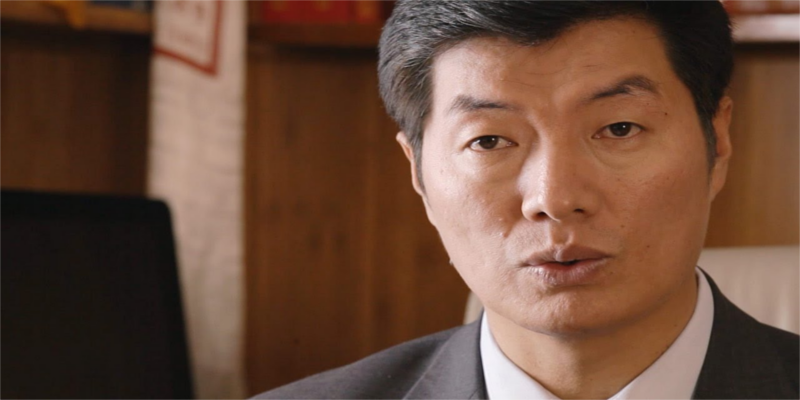Mao described Tibet right palm and Ladakh, Sikkim, Bhutan, Nepal and Arunachal Pradesh its five fingers said the Tibetan political leader Dr. Lobsang Sangay in an interview with the Governance Now recently. The president of Central Tibetan Administration, Dr. Sangay drew the ‘Right Palm Five Fingers’ strategy of Mao Zedong while talking about the border clashes between India and China in recent times.
“To understand the Doklam face-off, you have to look at China’s supreme leader Mao Zedong’s ‘right hand palm and five fingers’ strategy. In the 1950s, Mao described Tibet as the right hand palm, while Ladakh, Sikkim, Bhutan, Nepal and Arunachal Pradesh are five fingers.” replied the Dr. Sangay when asked about how he sees India China’s Doklam face-off.
“Because the Chinese were not stopped [by the world] when they were occupying Tibet in 1959, they have now got emboldened to move towards five fingers. Had Tibet’s capture [by China] been prevented, incidents like Doklam would not have taken place. For 60 years we were shouting from the rooftops that what happened to Tibet could happen to the world, but no one took us seriously. Now we have before us incidents like South China Sea, East China Sea and Doklam.” he added.
While the interview went on to discuss various issues such as the OBOR, Rohingyas, etc, Dr. Sangay also stressed that the non-violence is the right approach for Tibet even if it may take some time to yield.
“We feel the Gandhian notion of ‘ahimsa’ is the best way and we will continue to follow that path. Non-violence may take some time, but it is the right approach. Violence is futile. Yet we feel we have to be more active across the world. We will do that in a more forthright manner.” said the Tibetan president.
Dr. Lobsang Sangay is the first Tibetan political leader to take the full political responsibility after His Holiness the Dalai Lama fully retired from all political responsibilities in 2011. Since then he is presently taking the responsibility of the Central Tibetan Administration for the second term after he won the 2015 elections in Tibetan exile.

